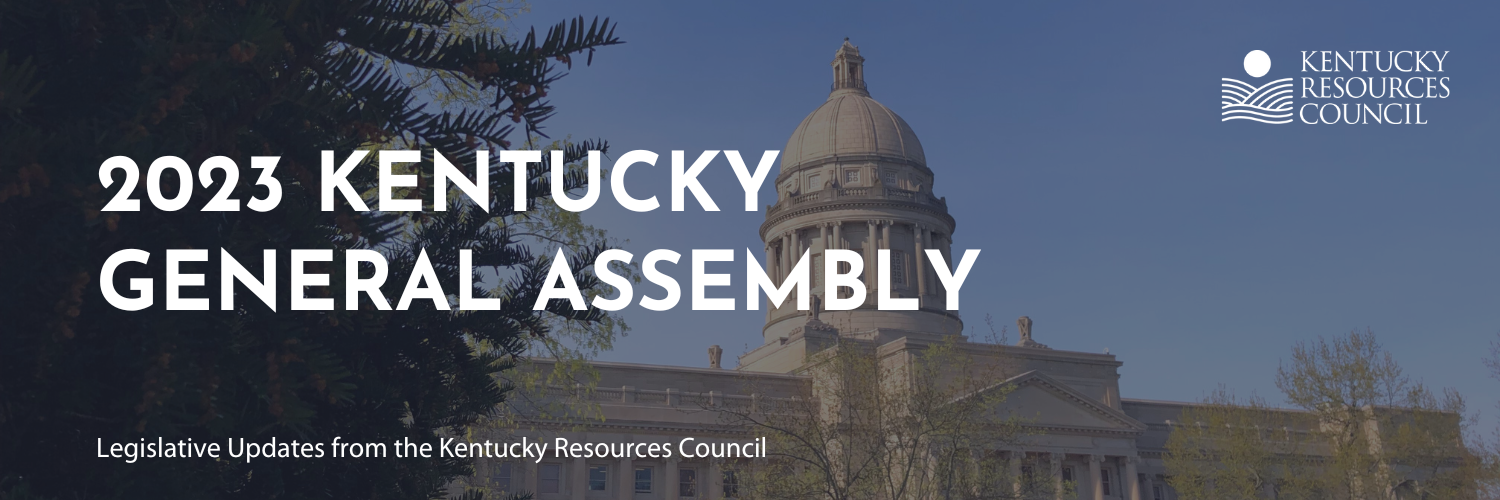SB245 - Ensure Affordable Utility Rates for Kentuckians
« Latest News

Testmiony Regarding Senate Bill 245
Mr. Chairman, committee members, I appreciate this opportunity to share KRC’s grave concerns with aspects of this bill. Whenever we approach utility issues, many of you know that KRC is particularly sensitive to getting it right when we change the signals to the utilities and to the Commission, because we can’t afford, literally can’t afford to get it wrong. Working at the intersection of poverty and pollution, and in a commonwealth with the 4th lowest per capita income in the nation, changes that increase bills for customers hurt both the most vulnerable and many of our major industries who are for different reasons equally cost and price sensitive.
In my 43 years of practicing energy and environmental law, and in my 37 years of teaching energy law, I have never come across a ratepayer who has expressed a desire that the Public Service Commission have less ability to assure that utility rates are affordable, and that electric utilities have less accountability to the public.
Yet this bill would do just that, allowing significant expenditures for various capital projects with little to no meaningful PSC scrutiny. It undercuts utility regulation principles of demonstrating need and absence of wasteful duplication in capital investments, which are the hallmarks of a CPCN, and it eliminates the principles of reasonable least cost planning, instead turning ratepayers into lending institutions and banks assuming the costs and financial risks for nuclear and nontraditional gas projects which may never come to fruition.
KRC has these preliminary concerns regarding Senate Bill 245.
- Sections 1-18 of the Act create the process and standards for securitization of utility debt. Properly done, securitization of utility debt can create real cost savings for ratepayers by accessing lower-cost long-term debt financing through bond issuance.
- A concern that I have regarding the proposed review process is in Section 5(1), which subjects consultants and advisors retained by the Commission to filing testimony and be subject to discovery and cross-examination. This is unprecedented and would open the door to subjecting commission staff, who function as advisors to the Commissioners, to discovery and cross-examination. The same section seeks to direct how staff and the Commission review a proposal by a utility to securitize debt in a manner that is intrusive.
- Regarding Sections 19 and 20, I don’t believe that the Commission has jurisdiction over nontraditional gas such as hydrogen. Additionally, any cost recovery for investments in development of infrastructure for innovative natural gas should be bounded as are all other investments by utilities. Least-cost principles, CPCN’s based on absence of waste and on demonstrated need, and a bar on passing costs along to ratepayers unless and until an asset is in service and is used and useful, should govern. Ratepayers should not be turned into banks or lending institutions to finance development of new energy sources.
- Section 21 is of significant concern because it allows for cost recovery from ratepayers for all reasonable expenses incurred by a utility for obtaining a permit from the NRC for a nuclear plant. This is a dramatic change in the rules governing cost recovery, which require that an asset be used and useful before ratepayers are required to pay for it. Obtaining a permit and actually constructing a facility and putting into service are completely different matters, and no cost recovery should occur unless the facility first receives a CPCN, is demonstrated to be the reasonable least-cost approach to meeting the energy requirements of the ratepayers, and the facility is actually used and useful.
- Section 23 of the bill has several provisions of concern. First, Section 1(e)purports to create a policy that utilities should own 75% of the renewable generation in the Commonwealth. This is an overreach, since utilities have no right to control renewable generation that is developed by merchant facilities or by independent power producers. This is an anti-competitive measure that is contrary to public policy. And given the open hostility that several of the investor owned utilities have shown to customer-owned distributed generation, it is inappropriate for the General Assembly to encourage utilities to control access to the sun for energy.
- Section 23 also creates an arbitrary presumption that a capital investment of under a certain percentage of the utility’s net worth is in the usual course of business. Such an approach would allow significant incremental capital investments at the cost of ratepayers without proper commission scrutiny to assure that the investments are needed and are not a wasteful duplication of existing facilities.
- So too, the ten-fold increase in length of 138 kv or greater transmission lines before a CPCN is needed would significantly increase allowed capital investments that would escape CPCN scrutiny.
- Imposing a 120-day requirement for processing a CPCN for a new electric generation facility before that CPCN would be deemed approved, imposes an unworkable timeframe that would of necessity abridge full consideration of such a significant capital investment.
In sum, many of these proposals will result in less Commission scrutiny of PSC-regulated utility capital investments, to the detriment of ratepayers.